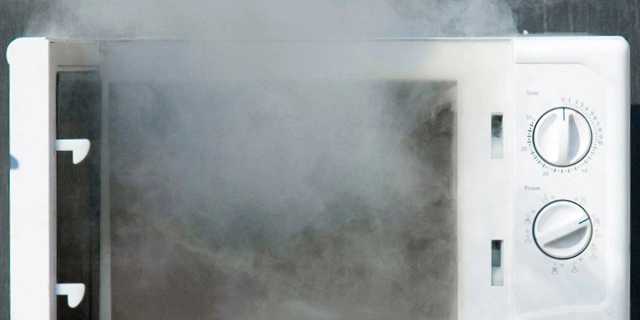Don't Ignore the Signs Your Appliances Are Overheating
In the hottest days of summer, your home appliances keep you cool. Your refrigerator supplies a cool can of soda or an ice-cold water bottle when you need it most, and your washer and dryer gets your kids’ swimsuits ready to go for an afternoon at the pool. Above all, your air conditioner engulfs you in cool air as you step inside your home and escape the heat outdoors.

Your appliances do their best to keep you from overheating, but are you returning the favor? Overheating can cause damage to your appliances, or worse – electrical fires. Prevent an electrical fire in your home by identifying the warning signs and learning how to prevent your appliances from overheating.
Which appliances are at risk?
Every appliance in your home is at risk of overheating – even your refrigerator! Be sure to keep the following appliances in mind:
- Microwave
- Air conditioner
- Dishwasher
- Washing machine/dryer
- Refrigerator
- Vacuum cleaner
- Oven
The warning signs
Because these everyday appliances can easily overheat, it’s important to be aware of the warning signs so you can fix the problem and prevent an electrical fire.
- Frayed cords
- Discolored outlets
- Broken/cracked outlets
- Appliance itself is unusually warm/hot
- Smoke
If you identify any of these warning signs, turn off your appliance and unplug it immediately (if possible). The problem may go deeper than the appliance itself, and an electrician may need to assess the situation. For example, your overheated appliance may have been caused by poor electrical connection, which generates too great of wattage for the size of the area.
Prevention ideas
You may need to enlist a professional if the problem involves heavy-duty electrical work. However, here are some ways to prevent overheating before an electrician needs to be called:
- Don’t overload the outlet – One of the biggest mistakes a homeowner can make is overloading an outlet or extension cord. Dedicate an entire outlet to your largest appliances. In addition, don’t force three prongs into a two-pronged outlet! Make sure large appliances are grounded and plugged into an appropriate outlet.
- Forget frayed cords – Absolutely do not operate your appliances with frayed cords. This is practically asking for an electrical fire. Dispose of frayed cords and invest in some new ones – your appliances and your home will thank you!
- Keep it clean – It is always a good idea to be sure your appliance’s insides, including coils, are clean to prevent overheating. It may be enough to simply wipe down the coils, but in some cases using pressurized air or water will work better. When it comes to your clothes dryer, be sure you remove lint from the catcher after each use to prevent an electrical fire.
- Consider the condenser – Believe it or not, your cold refrigerator is prone to overheating just like any other home appliance. This summer, pay attention to your refrigerator’s condenser. Condensers can get plugged up with dust and animal hair, so it’s important to have it cleaned regularly.
- Give it a rest – Above all, giving an appliance you use frequently a rest every now and then can be good for the overall health of the appliance. For example, if you use your oven frequently, try firing up a conventional toaster oven. You can cook full meals (even pizza!) on your countertop with ease, and it will keep your home from warming up, too!
Don’t allow your appliances overheat this summer! Be aware of the warning signs and refer to this appliance advice to prevent overheating. Ready for more Neighborly tips and tricks? Check out another one of our helpful blogs!



 Back
Back

 1 (855) 217-8437
1 (855) 217-8437


